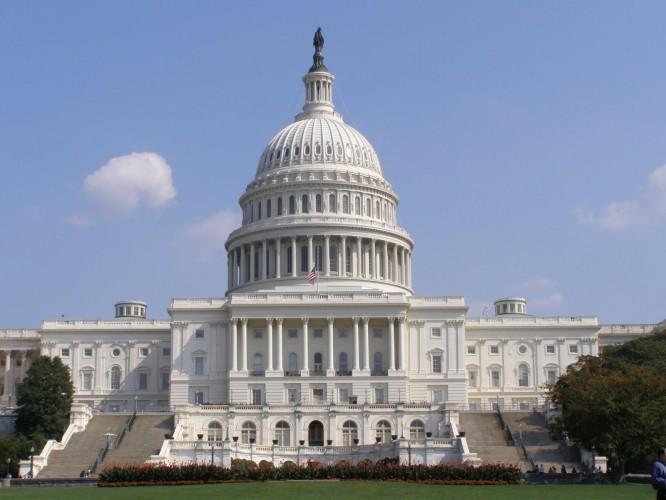U.S. Congressman commemorates victims of Khojaly genocide

By Vafa Ismayiova
U.S. Congressman Steve Cohen has commemorated the victim of Khojaly genocide committed by Armenian forces.
Making a statement on the 29th anniversary of the mass killings of Azerbaijanis by the Armenian armed forces in the town of Khojaly in Nagorno-Karabakh in 1992, Cohen described it as the worst day of the Nagorno-Karbabkh conflict.
"In the wake of the 2020 fighting between Azerbaijan and Armenia in Nagorno-Karabakh, it is my hope and prayer that the barriers to peace that have persisted for the last three decades can be resolved. Long-term peace, security, and regional cooperation are in the best interests of the entire region of the South Caucasus and the world," he noted.
Cohen stressed that the anniversary of the Khojaly tragedy "is an appropriate time to remember the lives of all the men, women, and children who were killed, and to recommit to working together to prevent such atrocities from occurring again".
He also said that long-term peace, security, and regional cooperation are in the best interests of the South Caucasus region and the world.
Azerbaijan key partner to U.S.
Speaking about bilateral ties, the congressman described Azerbaijan as a key partner of the U.S. and its allies.
"The U.S. and Azerbaijan established diplomatic relations in 1992, the same year as the Khojaly tragedy. Since then, Azerbaijan has been a key partner in the War on Terror and the two nations share a Trade Relations Agreement and a Bilateral Investment Treaty," he said.
Cohen co-chairs the working group on Azerbaijan in the US Congress and represents Tennessee in the House of Representatives.
The Khojaly massacre, also known as the Khojaly tragedy, was the mass murder of ethnic Azerbaijani civilians by the Armenian armed forces and the 366th CIS regiment in the town of Khojaly in Nagorno-Karabakh on 26 February 1992 during the First Karabakh War.
Before the massacre, 7,000 residents lived in Khojaly town, located in the Nagorno-Karabakh region of Azerbaijan. Over 600 civilians, including 106 women and 83 children, were killed, more than 100 children lost one of their parents, 25 children lost both parents, and 8 families were exterminated.
The Nagorno-Karabakh conflict broke out after the rise of anti-Azerbaijan sentiments in Armenia in 1988 due to Yerevan's illegal claims to Azerbaijan's internationally-recognized Nagorno-Karabakh region.
Following the Soviet Union’s dissolution in 1991, Armenia waged a total war against Azerbaijan through armed attacks on the Nagorno-Karabakh region. The war lasted until a ceasefire in 1994. Some 30,000 Azerbaijanis are reported to be killed in the first Karabakh war. Armenia's forces displaced one million throughout the hostilities, while forcibly occupied 20 percent of Azerbaijan’s internationally recognized territories – the Nagorno-Karabakh region and seven surrounding districts. For nearly three decades, Armenia failed to implement the UN Security Council resolutions (822, 853, 874 and 884) demanding the immediate and unconditional withdrawal of its troops, which was the main obstacle to the resolution of the conflict.
The war resumed on September 27 following the artillery shelling of Azerbaijani military positions and civilian settlements by Armenia's forces deployed in the occupied lands of Azerbaijan.
The trilateral peace deal signed by the Azerbaijani, Russian and Armenian leaders on November 10, 2020, ended the 30-year-old conflict between Baku and Yerevan over Azerbaijan’s Nagorno-Karabakh region that along with the seven adjacent regions came under the occupation of Armenian armed forces in the war in the 1990s.
On January 11, 2021, the Azerbaijani, Russian and Armenian leaders signed the second statement since the end of the 44-day war. The newly-signed statement is set to implement clause 9 of the November 2020 statement related to the unblocking of all economic and transport communications in the region.
--
Follow us on Twitter @AzerNewsAz
Here we are to serve you with news right now. It does not cost much, but worth your attention.
Choose to support open, independent, quality journalism and subscribe on a monthly basis.
By subscribing to our online newspaper, you can have full digital access to all news, analysis, and much more.
You can also follow AzerNEWS on Twitter @AzerNewsAz or Facebook @AzerNewsNewspaper
Thank you!
